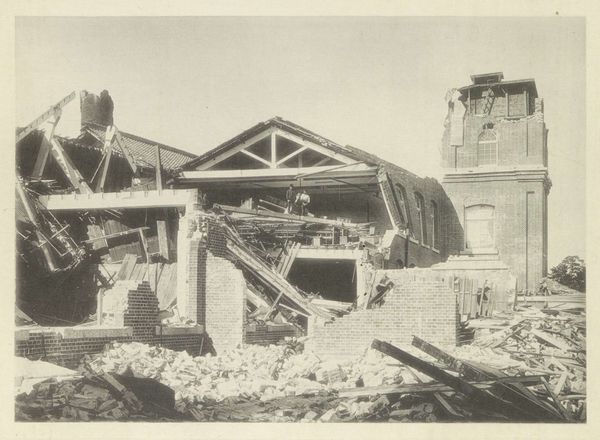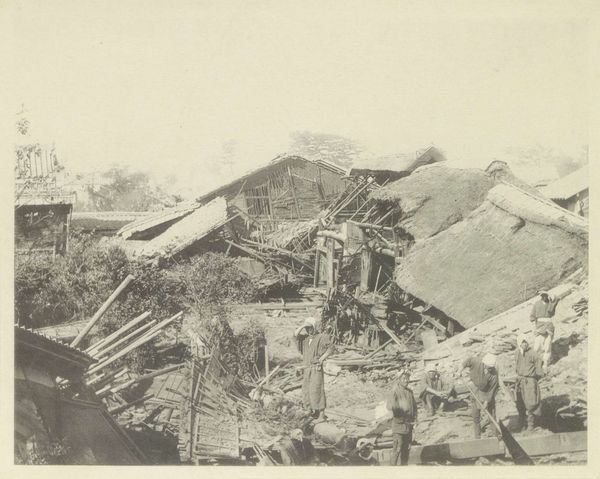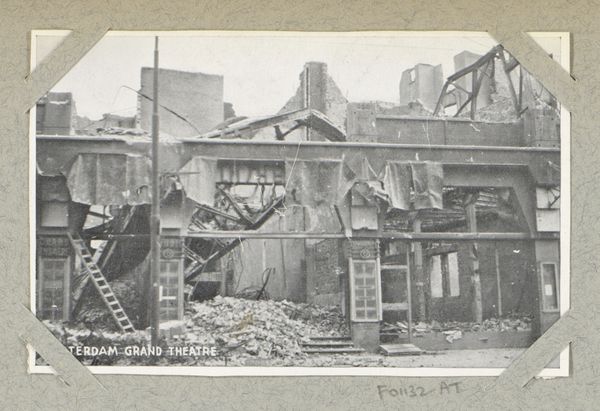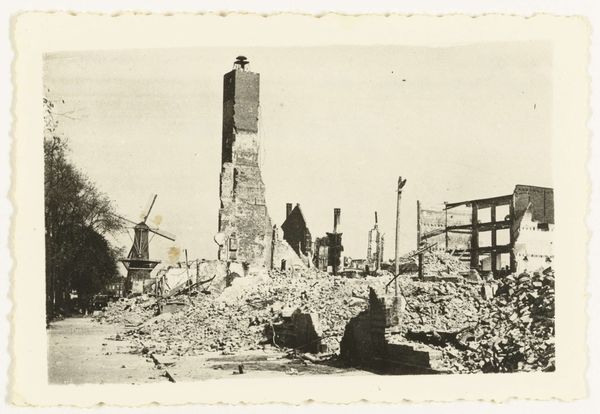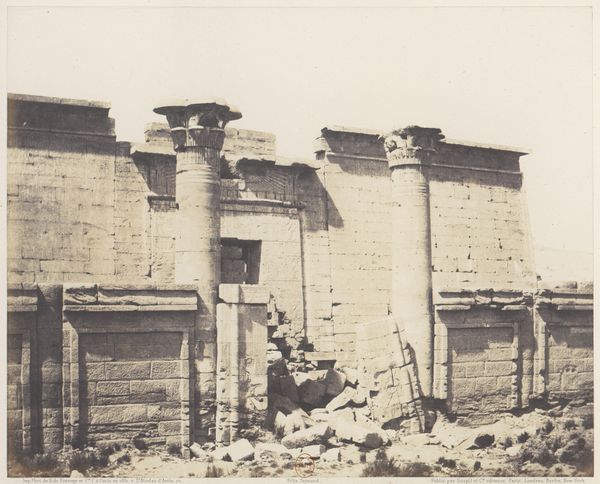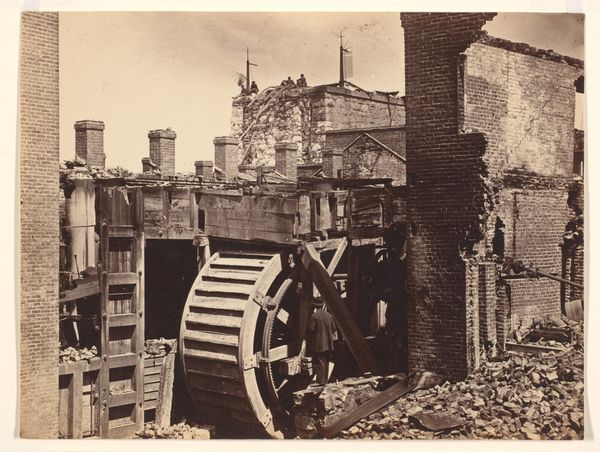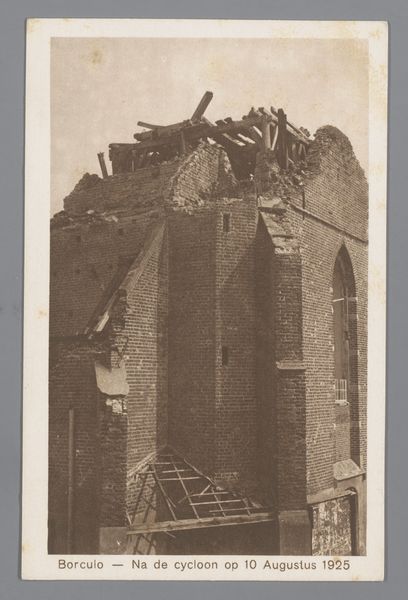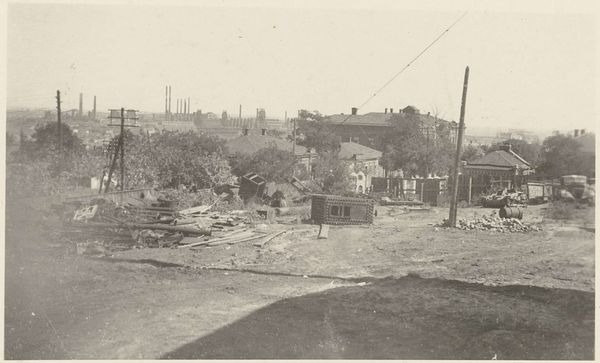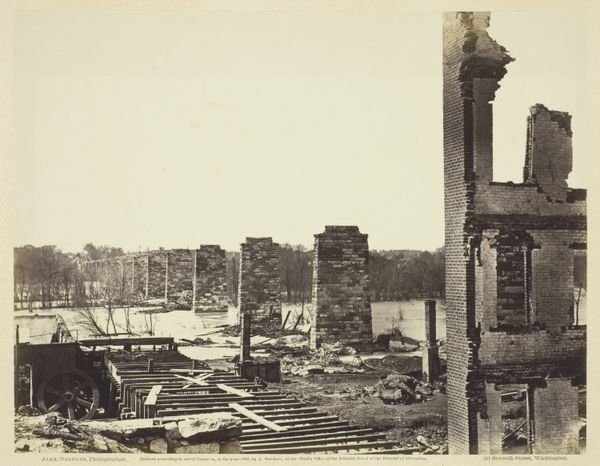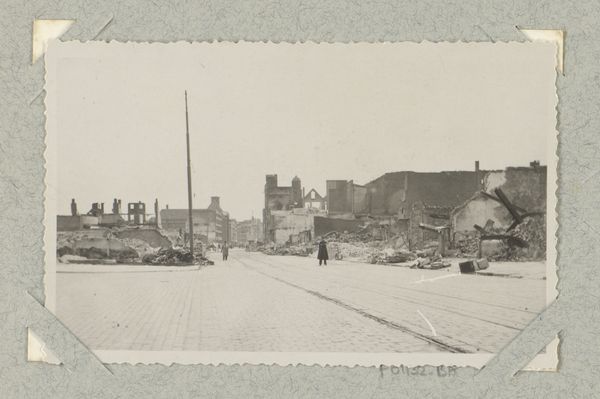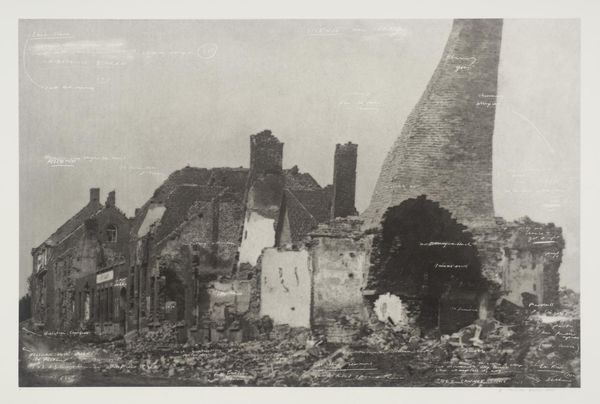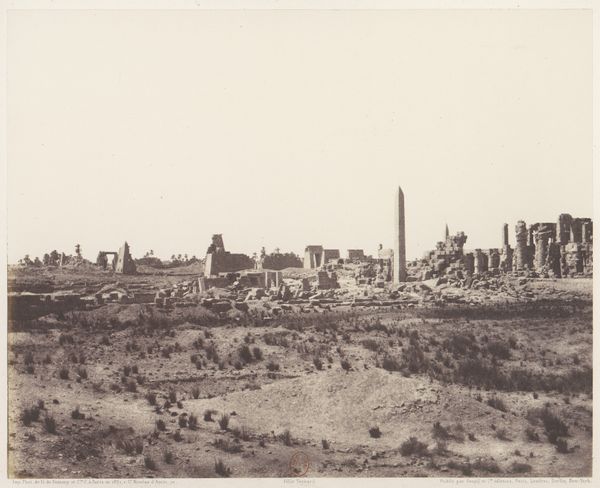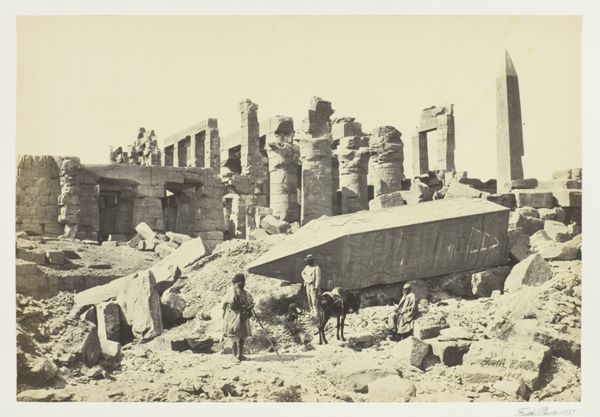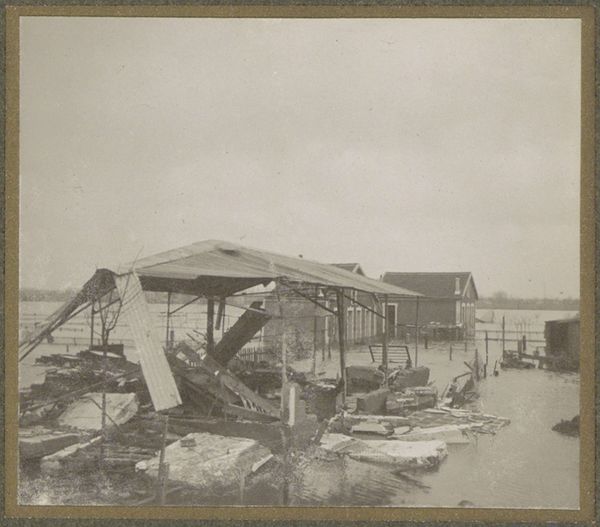
print, photography, gelatin-silver-print
# print
#
landscape
#
photography
#
gelatin-silver-print
#
19th century
#
cityscape
#
history-painting
Dimensions: height 202 mm, width 289 mm
Copyright: Rijks Museum: Open Domain
Editor: We're looking at "Ingestorte katoenmolen te Nagoya," a photograph – likely a gelatin silver print – taken before 1892 by an anonymous artist. The image depicts a partially collapsed cotton mill in Nagoya. The mood is somber and unsettling, given the visible destruction. What do you see in this piece, and how do you interpret this historical image? Curator: It feels almost like a stage set, doesn't it? The way the light catches the exposed roof beams… It’s a dance between ruin and resilience, frozen in time. Look closely at the people gathered near the mill, the small figures by a scene of disaster. A new industrial world being violently ushered in, but captured in the very photographic medium driving its relentless transformation, isn't it ironic? I see a document of rapid change but with undertones that are simultaneously tragic and oddly hopeful. What do *you* make of the chimney still standing tall? Editor: That's an interesting observation! To me, that chimney represents a stubborn refusal to succumb, maybe even a beacon, despite the surrounding chaos. But I was focused on the collapsed sections and the almost theatrical framing, it seems so surreal. Curator: It *is* surreal, absolutely! Perhaps because this medium -- gelatin silver print -- gave an ordinary person a sense of "presence" at the depicted historical scene in a new and tangible way, which feels weirdly modern. Don't you think that what we *think* is objectively "real" is highly suspect when dealing with photographic evidence? Maybe a photo never tells the whole story. It’s just a snippet, a constructed truth if you will. Editor: That’s really thought-provoking. I came into this thinking I’d see just a historical record, but now I'm questioning the nature of truth itself. Thanks! Curator: Exactly! And isn’t questioning everything the best part of studying art history?
Comments
No comments
Be the first to comment and join the conversation on the ultimate creative platform.
